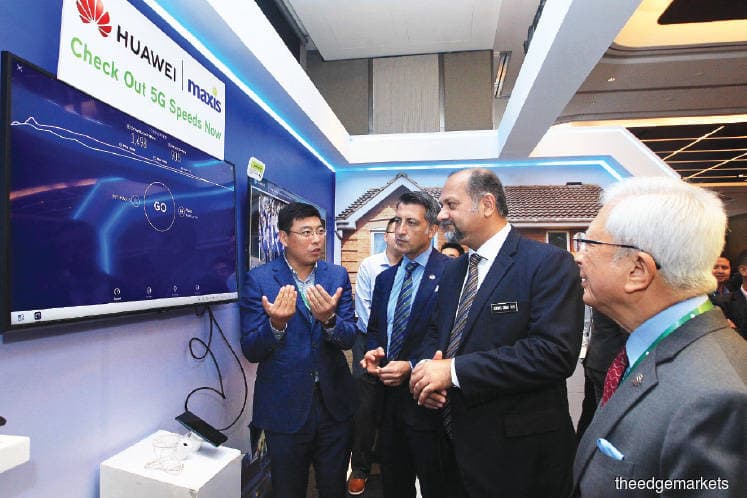
This article first appeared in The Edge Financial Daily on November 1, 2019
KUALA LUMPUR: There is no time like the present for businesses to start looking into and developing fifth-generation (5G) capabilities, as the technology promises enhanced business opportunities, according to Maxis Bhd’s chief technology and information officer Morten Bangsgaard.
“It is going to be a groundbreaking technology,” Bangsgaard told a panel discussion themed “Opportunities of 5G and what it means for businesses” at the Business Spark Summit 2019.
While it is not an all-encompassing solution for issues or problems that may arise during the operation of a business, he said it is a much more efficient network that is able to transport more data at faster speeds, which adds another dimension when it comes to helping businesses find solutions to their problems.
Huawei Carrier Business Group chief transformation officer David Bruce Morrison, who was also present during the discussion, said while a lot of Internet of things (IoT) services can be provided on existing 4G networks — and indeed are being provided — 5G networks promises significant improvements from its speedier data transfer.
“We are in the age of implementation and countries like Malaysia cannot be complacent. Your competitors are not your next-door neighbours. [And among] your competitors is China, which invests in local technology and small to medium enterprises. If you don’t implement [new technology], they will walk over you.
“You need to start looking at this (5G technology) now,” Morrison added. Meanwhile, more collaborations, even among competitors, will be an advantage in the implementation of new technologies, Samsung’s services planning group and business development global director Edwin Kang pointed out.
Doing so will allow the collaborators to leverage on one another’s capabilities to exploit new opportunities, he said. “The old school adversarial perspective for competitors needs to subside. Partnership, even with our biggest competitors, will be the more advantageous approach,” said Kang.
Morrison concurred with Kang’s point, adding that telcos are also incentivised to work together to implement 5G technology, which leads to wider coverage.
5G is set to be a game changer in the commercial area, said Vodafone’s IoT head of global expansion Roland Ristig, particularly in terms of how the use of 5G technology will be monetised. “The new technology (5G) gives us a lot more opportunities to tailor new solutions [for the market]” said Ristig.
That being said, Bangsgaard said it was too early to tell how 5G will specifically impact IoT services.
The cloud advantage
In a separate panel discussion themed “Embracing the future of cloud”, Malaysian businesses are urged to start looking into moving to cloud computing technology as it allows for more activities to be done, given that it allows employees access to company data and functions from anywhere in the world where there is an internet connection.
“I would encourage you to ask the question why is it [a business] not on the cloud,” said Maxis chief enterprise business officer Paul McManus, as he highlights how the technology is able to address a lot of operational pain points for businesses.
For Accenture Asia-Pacific cloud managing director Romain Groleau, businesses should start small but be bold when it comes to the implementation of cloud technologies. “The core set of applications [outlined on the onset] will determine the success [of a particular cloud programme],” said Groleau, adding that cloud computing should be treated as an innovation catalyst.
But before embarking on cloud, Cisco Asean president Naveen Menon said the leadership must first learn what the technology entails and how it fits into a company’s operations and service offerings.
For Petronas digital engineering head Phuah Aik Chong, companies need to “go in with their eyes open” and do the groundwork beforehand, especially on understanding the technology’s case studies.
Moreover, businesses should first see if they have the relevant skill sets within their staff as getting the right talent to set up cloud technologies has its own cost implications, Phua said.